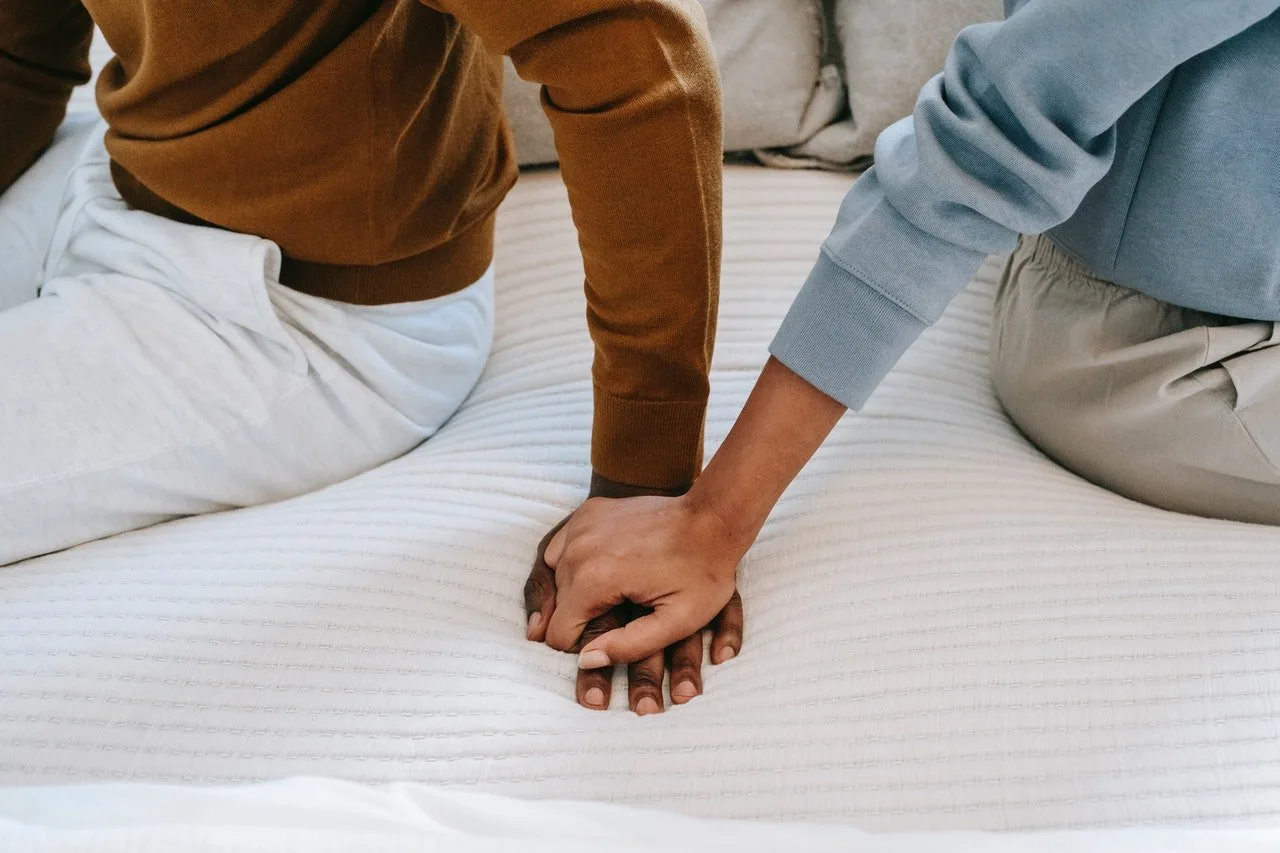I appreciate a good night’s sleep, and I’m sure that you do too. Unfortunately, there are a few things that can disrupt this, including sharing a bed. Speaking on the Lipstick On the Rim podcast, Cameron Diaz proclaimed that couples should normalize sleeping in separate bedrooms. The actress may be on to something. In fact, opting for a sleep divorce may be exactly what couples need to save their sleep quality and their relationships.
Is Poor Sleep A Relationship Dealbreaker?
Yes, sharing a bed with your partner can offer a sense of security and comfort that may improve your sleep, but this is not always the case.
One study found that sharing a bed with a heavy snorer makes it three times harder to fall asleep and stay asleep. Furthermore, if you had to deal with a snorer at night, you may have to deal with fatigue and daytime sleepiness the following morning. This may explain why a survey from The American Academy of Sleep found that 31% of women wake up feeling tired – men are twice as likely to be snorers.
Also, if your partner is a night owl, and you’re more of an early bird, you’re more likely to be woken up frequently as your partner will come to bed late. They’ll then wake you up and cause you to experience a shorter sleep time.
Lastly, sharing a bed with your partner may not only compromise your sleep quality, but poor sleep may lead to more fights with your person.
A relationship spat isn’t the only thing you should be concerned about after a poor night’s rest. Studies have found that poor sleep can increase the risk of heart disease, dementia, obesity, and even cancers of the breast, colon, and prostate.
With all that said, it may be time to take some time away from your partner – at least at night.
Is It Time for A Sleep Divorce?
According to an American Academy of Sleep Medicine survey, over a third of Americans are opting for a sleep divorce. They regularly sleep in different rooms, to improve their sleep – and potentially their relationships,
“Some couples have very different body clocks, leading to different sleep timing preferences, so they find it is easier to sleep in separate beds rather than disturb one another,” explained sleep psychologist Dan Ford, to National Geographic.
Besides easing any tension in your relationship, opting for a sleep divorce may also help to;
-
Improve sleep quality
-
Reduce sleep interruptions
-
Increase sleep time
-
Prevent injuries – some people may hit or kick in their sleep
Yet, a sleep divorce does have its drawbacks. The most obvious is that it requires a spare room, and a spare bed – both of which can be quite costly.
Also, sleeping in a separate bed from your partner is sure to affect your sex life. Lastly, sleeping in an empty bed may impact your sense of security. This may cause lighter sleep as you’re constantly on alert for any threats.
Finalizing a sleep divorce
If your sleep quality is poor, and your relationship may be to blame, then it could be time for a sleep divorce. So, how do you navigate it without compromising the quality of your relationship?
1. Communicate
Now, the last thing you want is to place strain on your relationship by making it appear that you rank rest over your partner. Yet, it’s important to explain to your partner your concerns about your health and well-being.
When proposing a sleep divorce, be open and gentle. Explain that you’re not looking to get away from them, but rather solve your potential insomnia.
2. Practice intimacy
Granted, sharing a bed is an intimate practice, but there are other ways to explore intimacy with your partner. Going for a walk, cooking together, unwinding with a glass of wine, watching a movie or even cuddling in the mornings are each great ways to enjoy emotional intimacy with your partner.
Want to know more?
If you’re hoping to improve your sleep quality and relationship, why not get into the habit of spooning? After all, spooning is beneficial for both your health and your relationship.
References
American Academy of Sleep Medicine Sleep Prioritization Survey Sleep Divorce. (n.d.). Available at: https://aasm.org/wp-content/uploads/2023/07/sleep-prioritization-survey-2023-sleep-divorce.pdf.
Ben Simon, E., Vallat, R., Rossi, A. and Walker, M.P. (2022). Sleep loss leads to the withdrawal of human helping across individuals, groups, and large-scale societies. PLoS Biology, [online] 20(8), pp.1–25. doi:https://doi.org/10.1371/journal.pbio.3001733.
John Hopkins Medicine. (n.d.). Health Risks of Poor Sleep. [online] Available at: https://www.hopkinsmedicine.org/health/wellness-and-prevention/health-risks-of-poor-sleep.
Luyster, F.S. (2017). Impact of Obstructive Sleep Apnea and Its Treatments on Partners: A Literature Review. Journal of Clinical Sleep Medicine : JCSM : Official Publication of the American Academy of Sleep Medicine, [online] 13(3), pp.467–477. doi:https://doi.org/10.5664/jcsm.6504.
National Geographic. (2024). Why a ‘sleep divorce’ might be good for your relationship. [online] Available at: https://www.nationalgeographic.com/history/article/sleep-divorce-health-benefits [Accessed 27 May 2024].
Sims, M. and Gormley, E. (hosts). (2023) ‘Cameron Diaz and Katherine Power Love a Glass of Wine – How the Duo Stays Health Conscious with Alcohol and Beyond, Getting Around the Word ‘No,’ and the Ultimate Tan Trick’, *Lipstick on the Rim*. Art19. Available at: https://art19.com/shows/lipstick-on-the-rim/episodes/68f50ede-bbcd-4795-81ff-aecc603126d0/ (Accessed: 27 May 2024).
Troy, D. (n.d.). Snoring. [online] Sleep Education. Available at: https://sleepeducation.org/sleep-disorders/snoring/.
Walters, E.M., Phillips, A.J.K., Mellor, A., Hamill, K., et al. (2019). Sleep and wake are shared and transmitted between individuals with insomnia and their bed-sharing partners. Sleep, 43(1). doi:https://doi.org/10.1093/sleep/zsz206.



![women [longevity live]](https://longevitylive.com/wp-content/uploads/2020/01/photo-of-women-walking-down-the-street-1116984-100x100.jpg)










